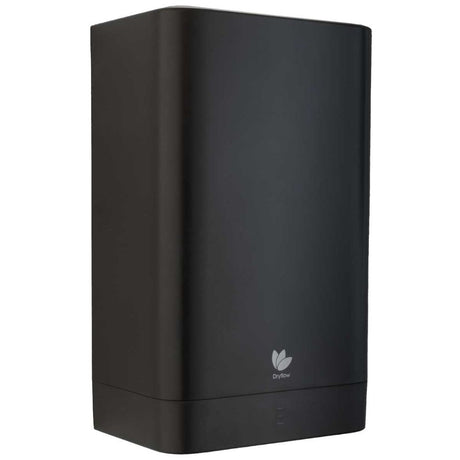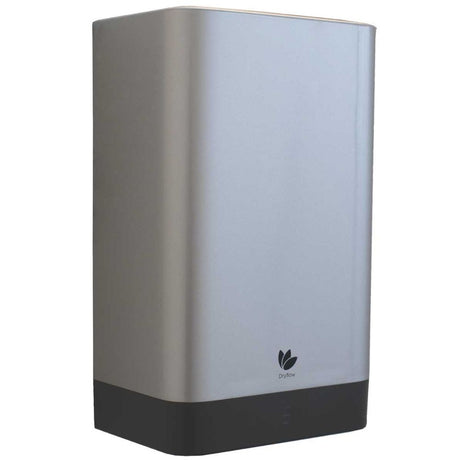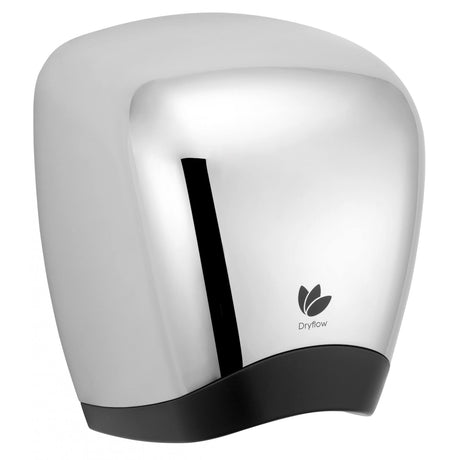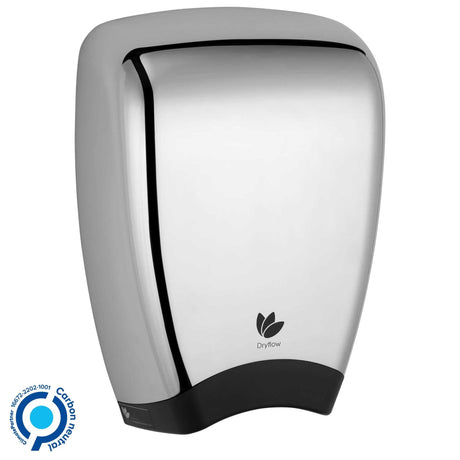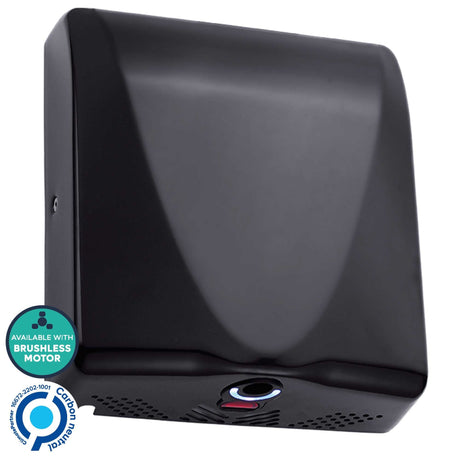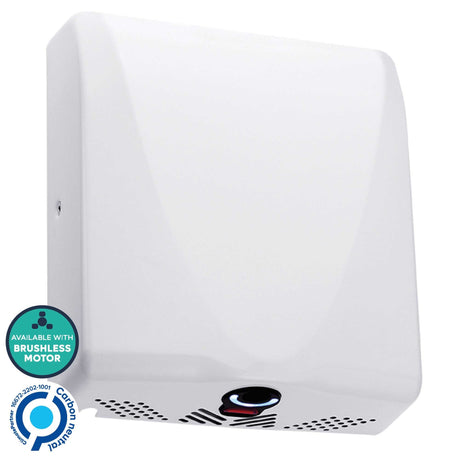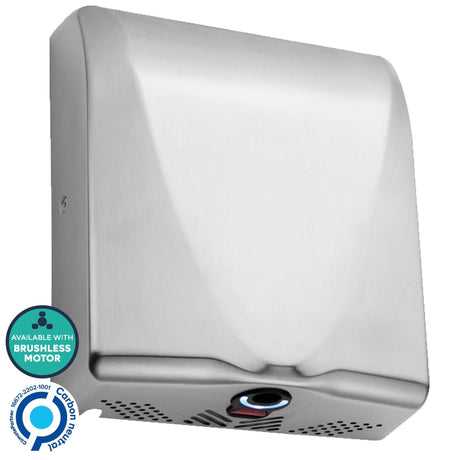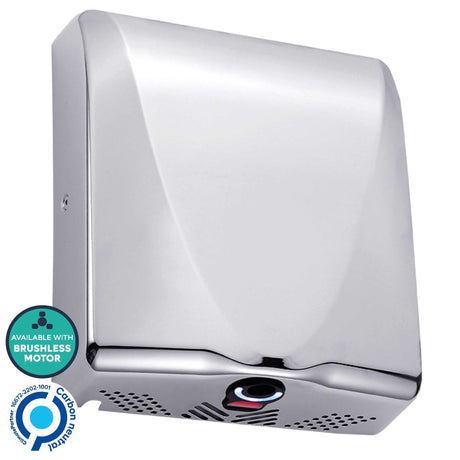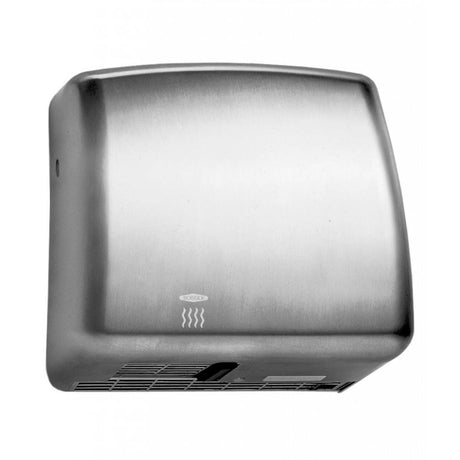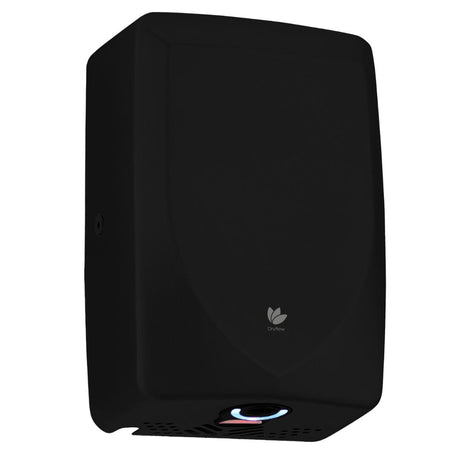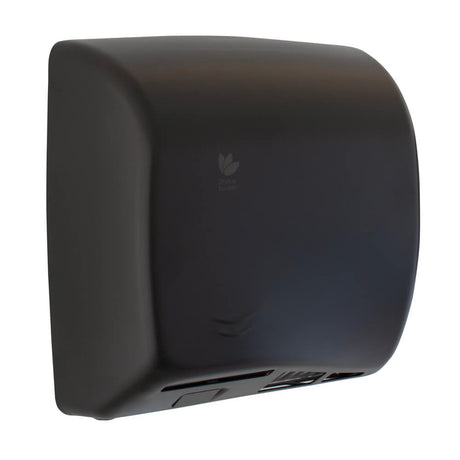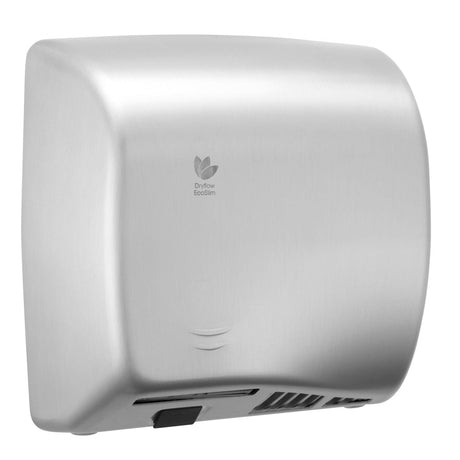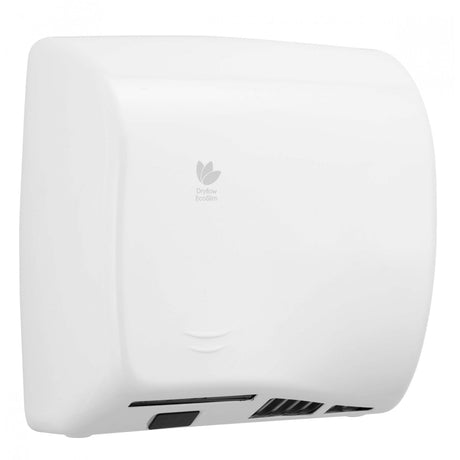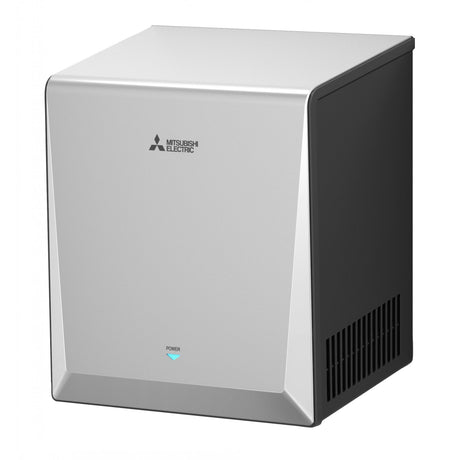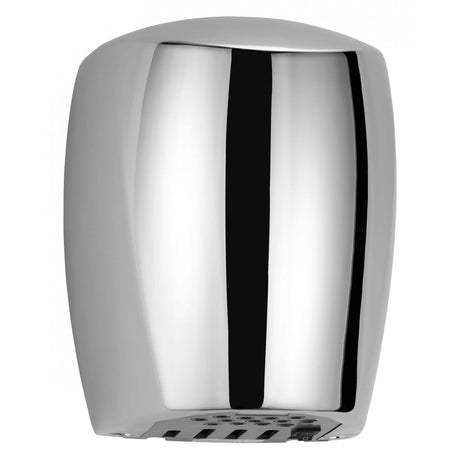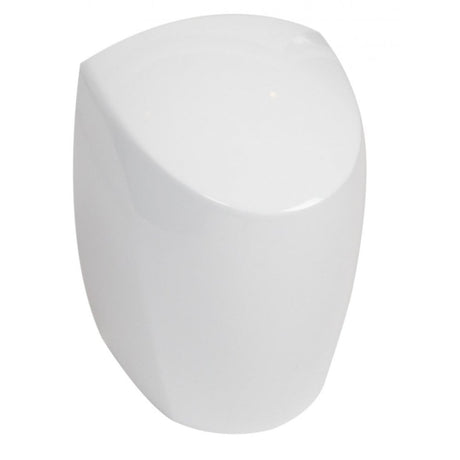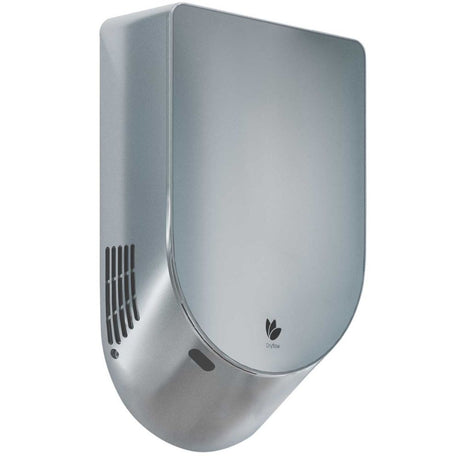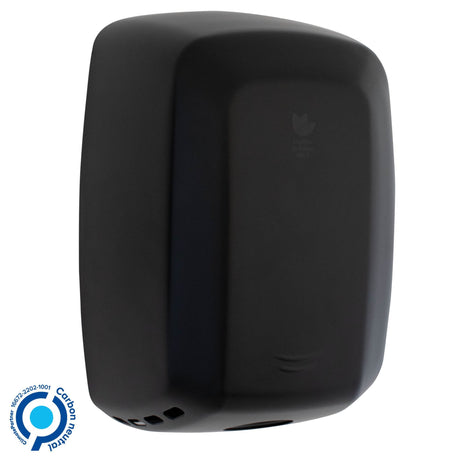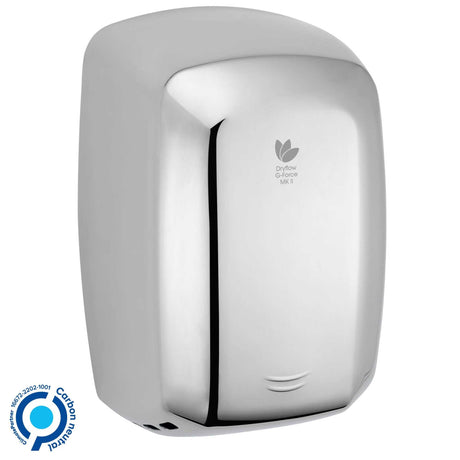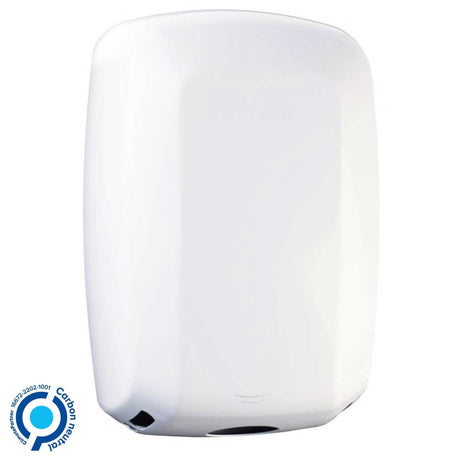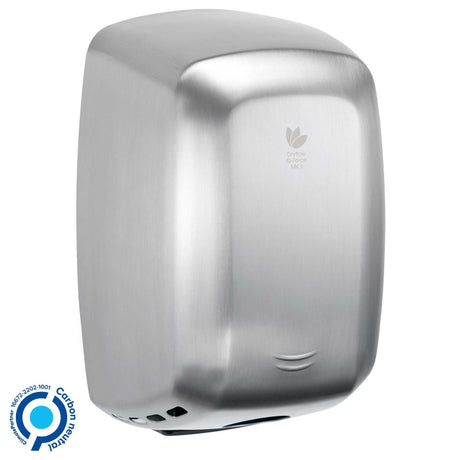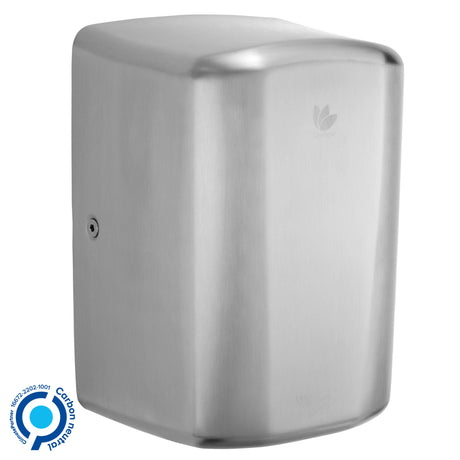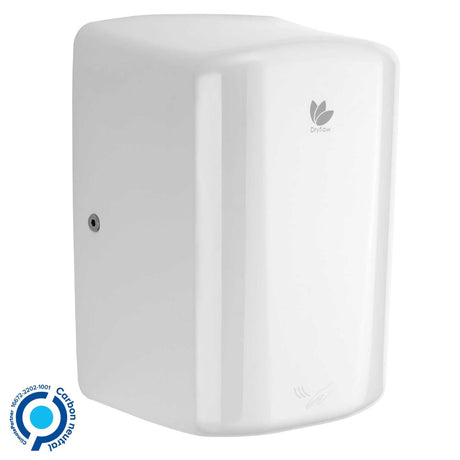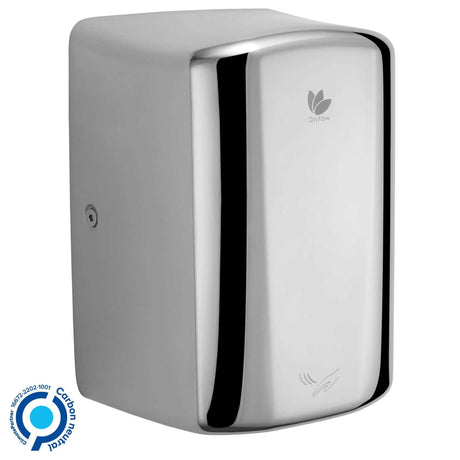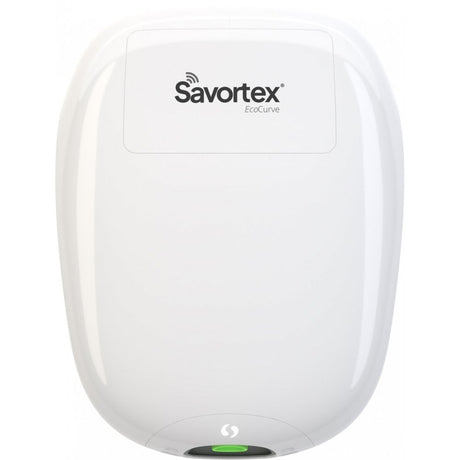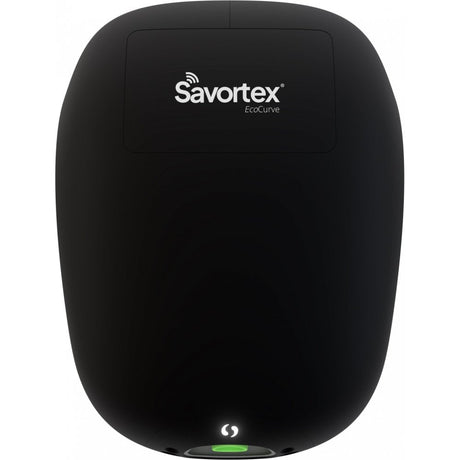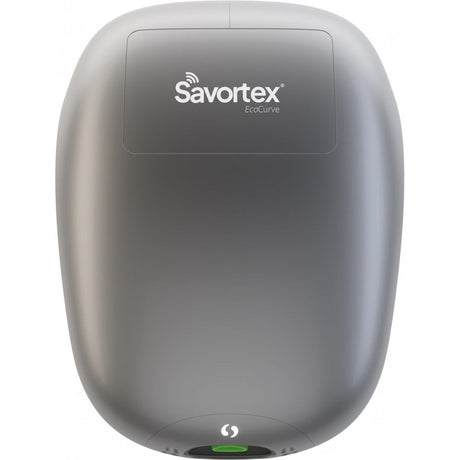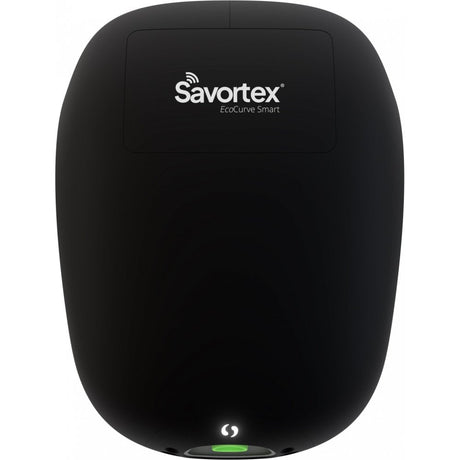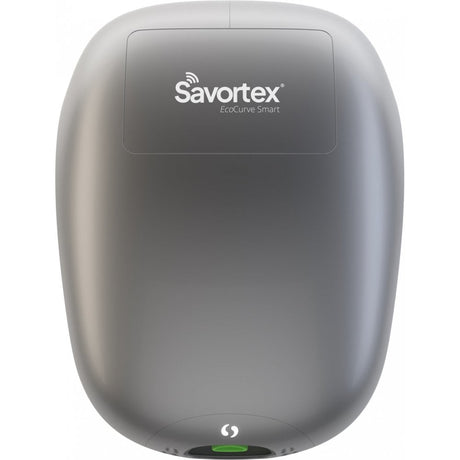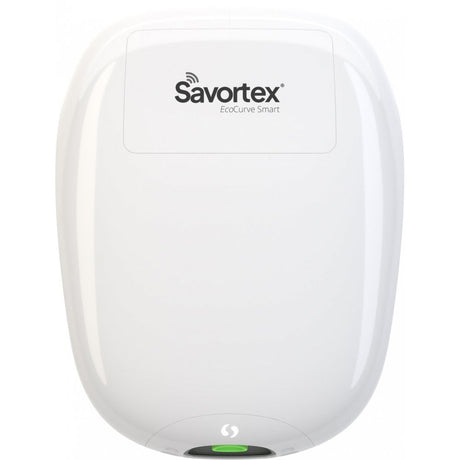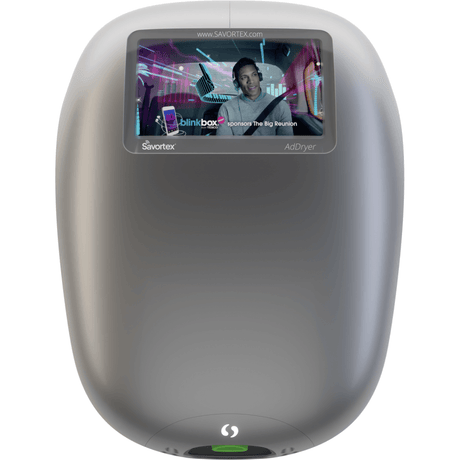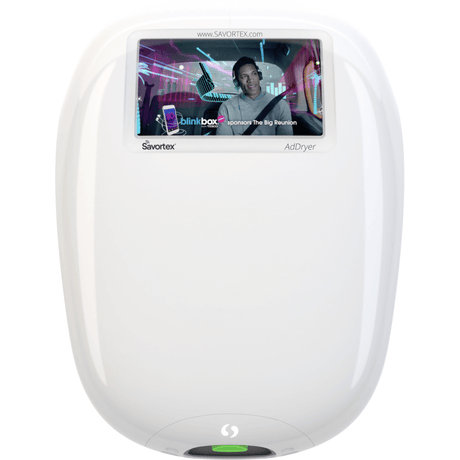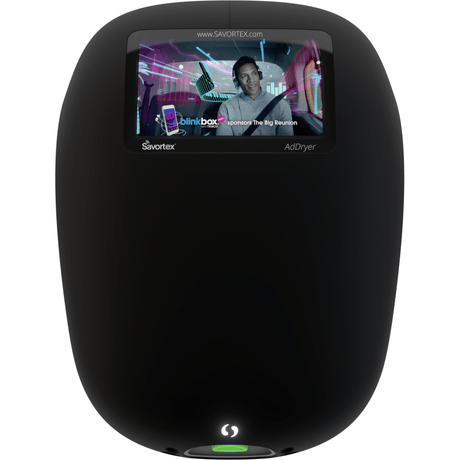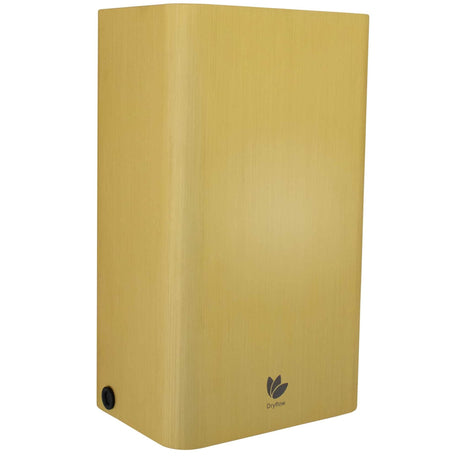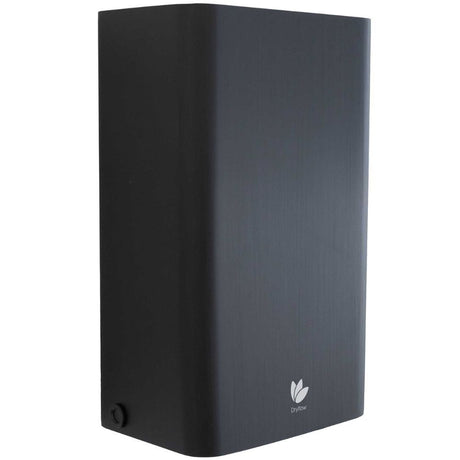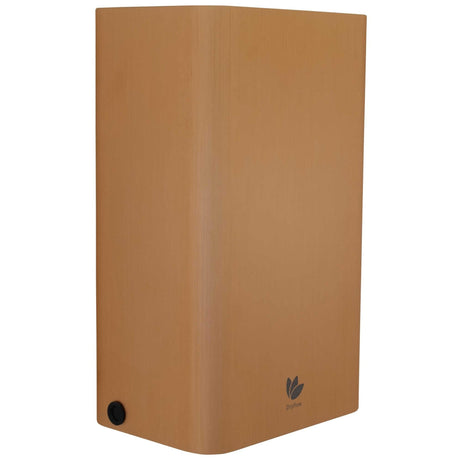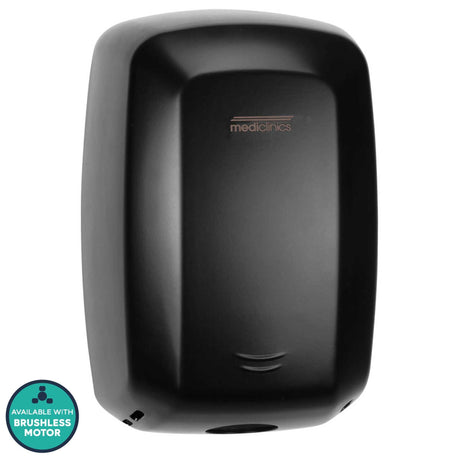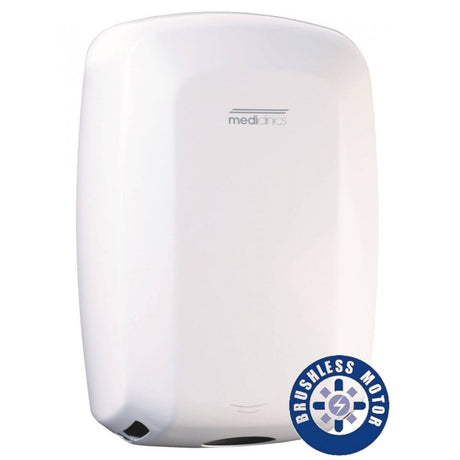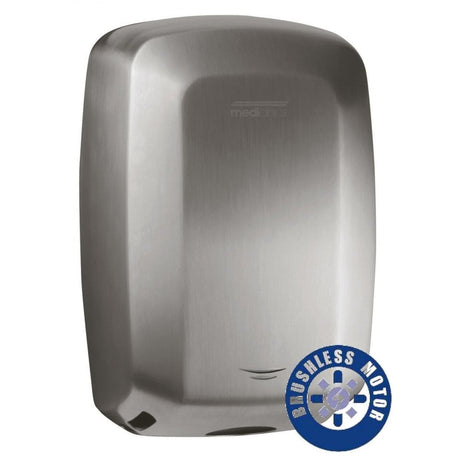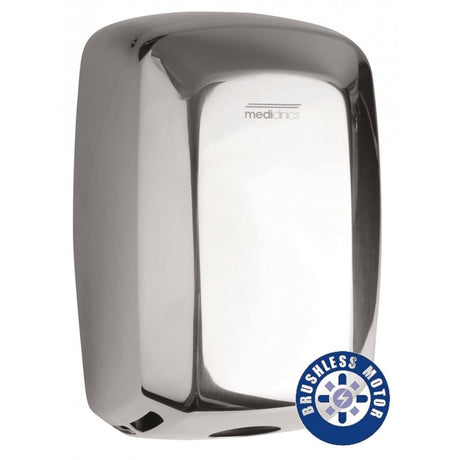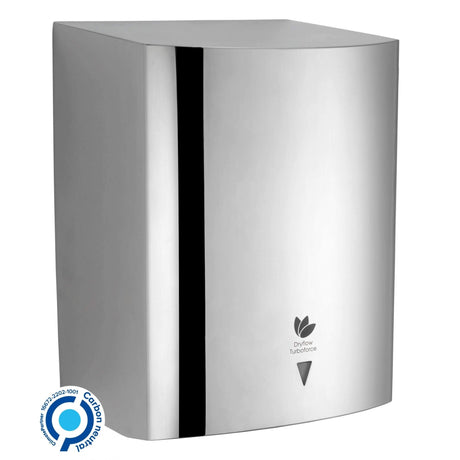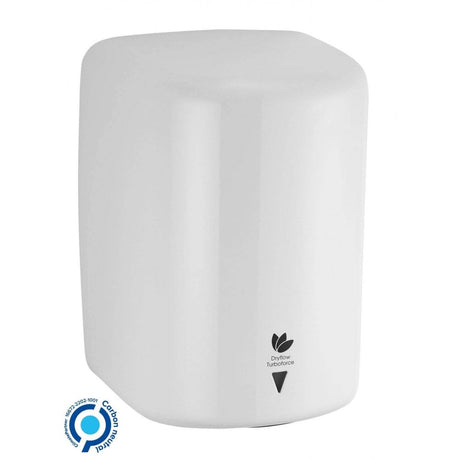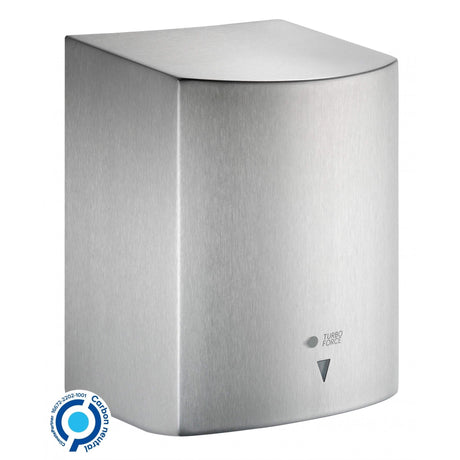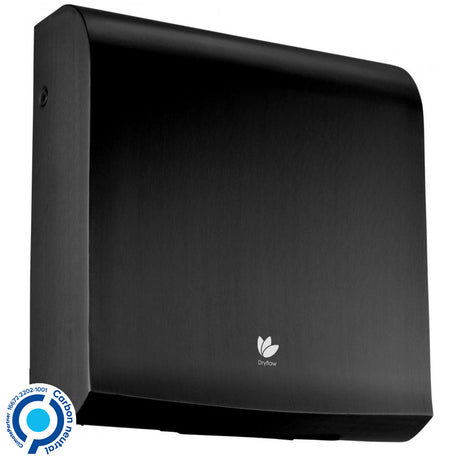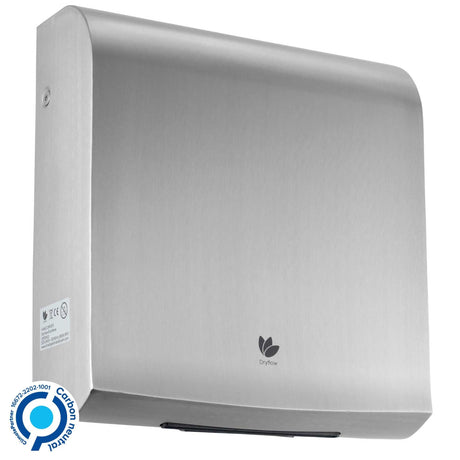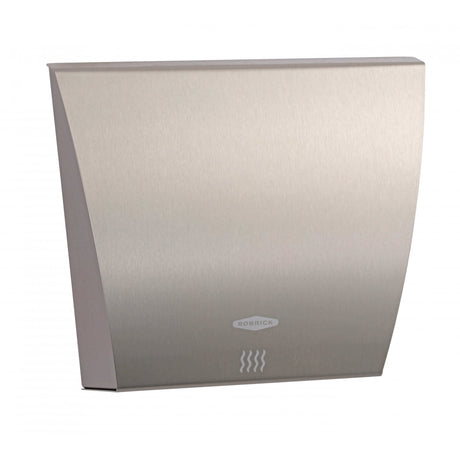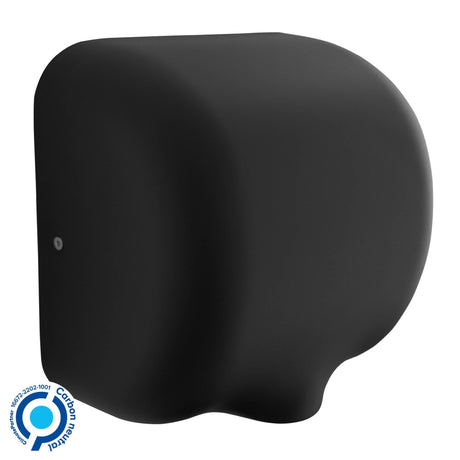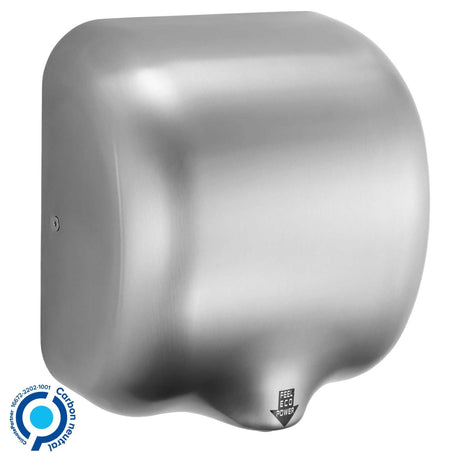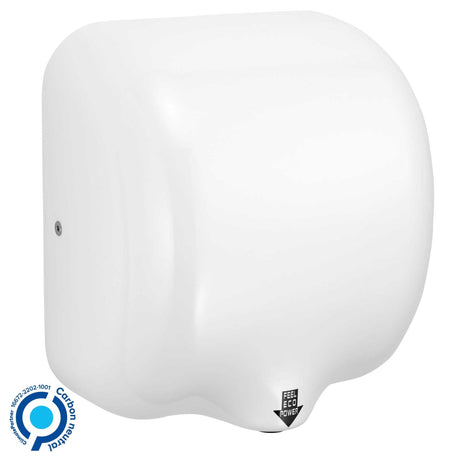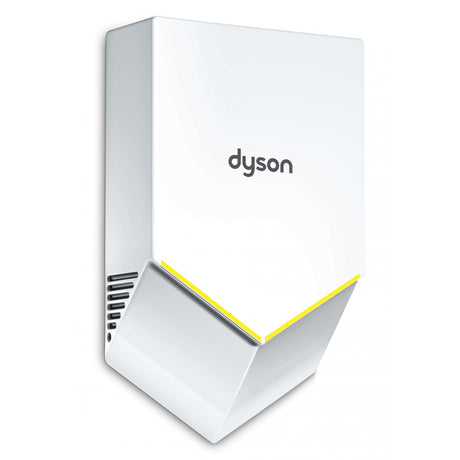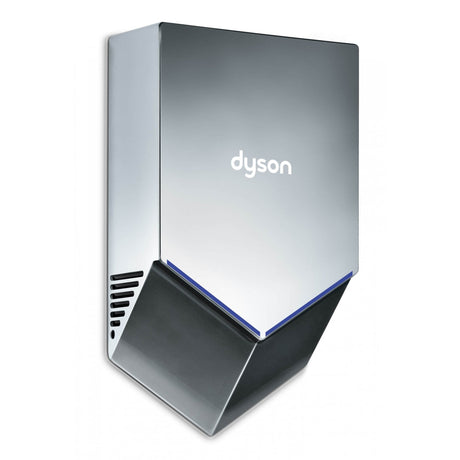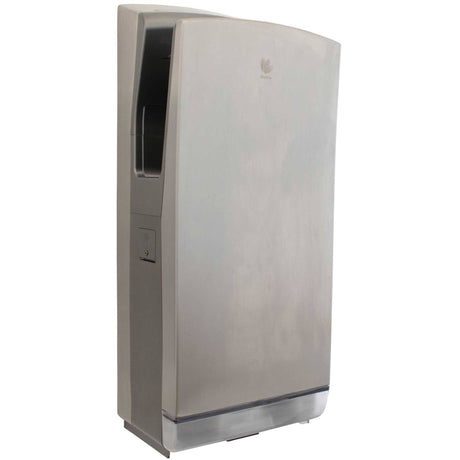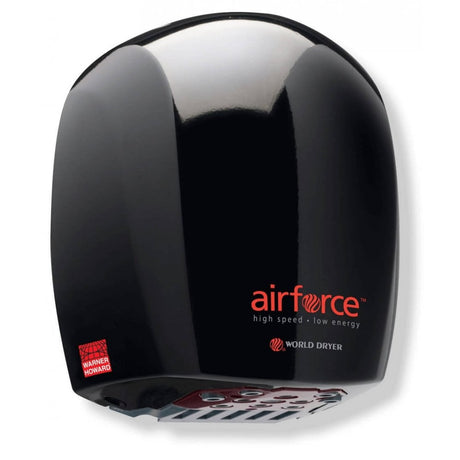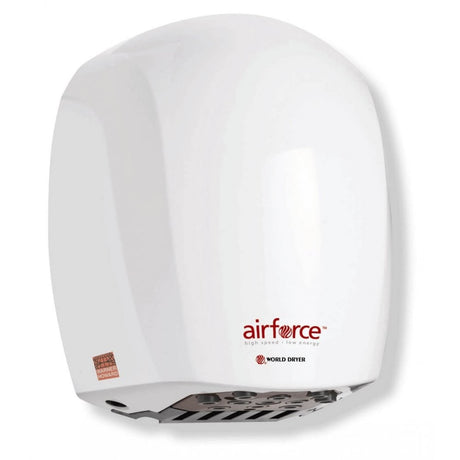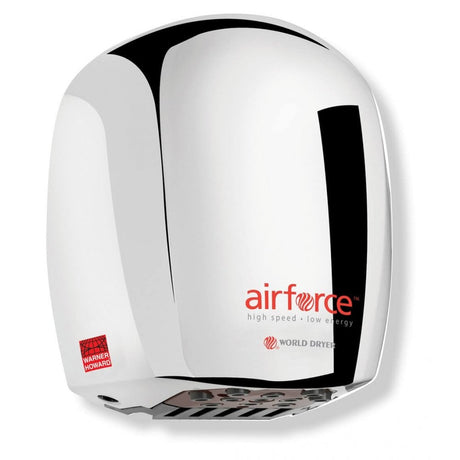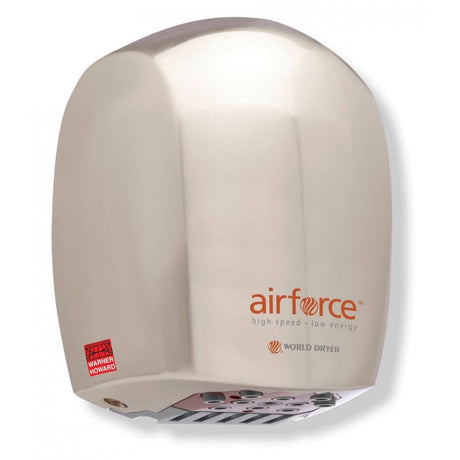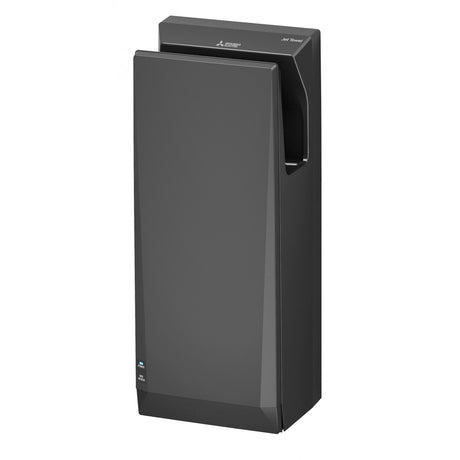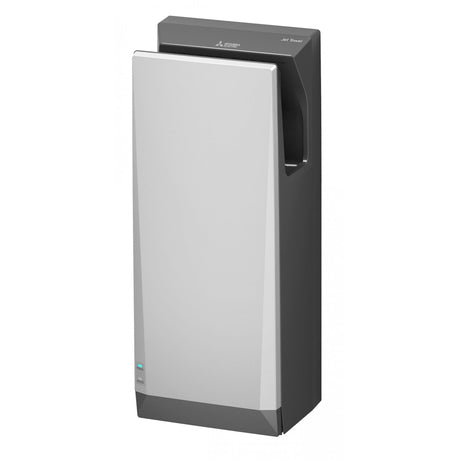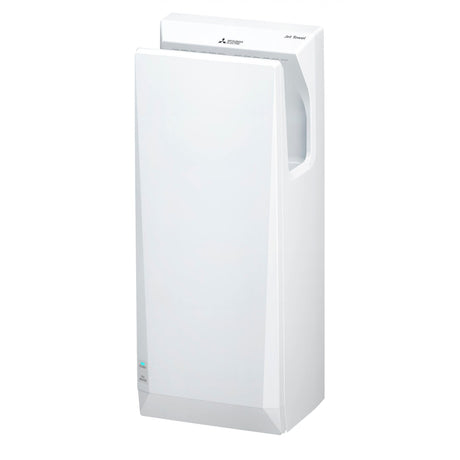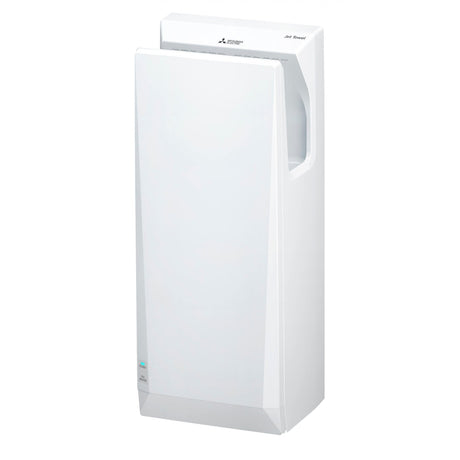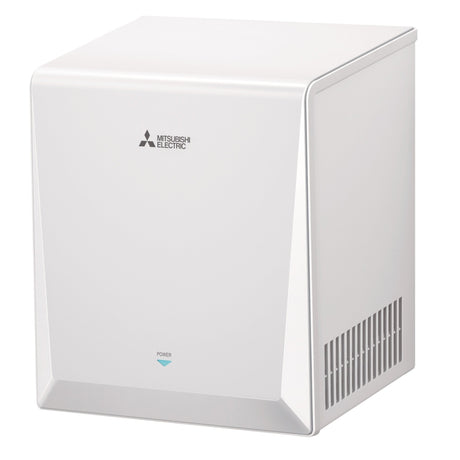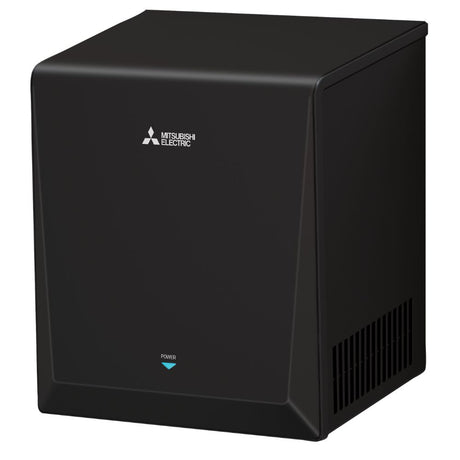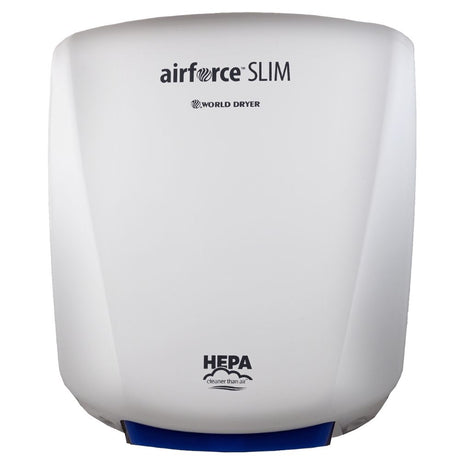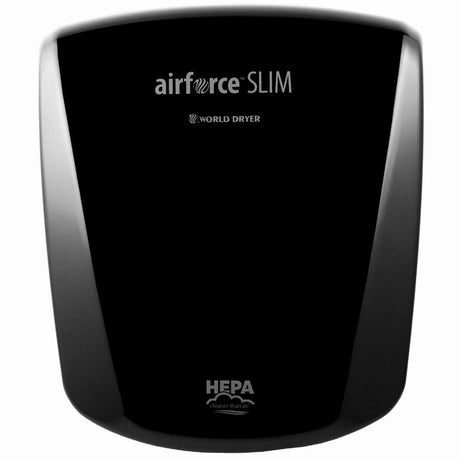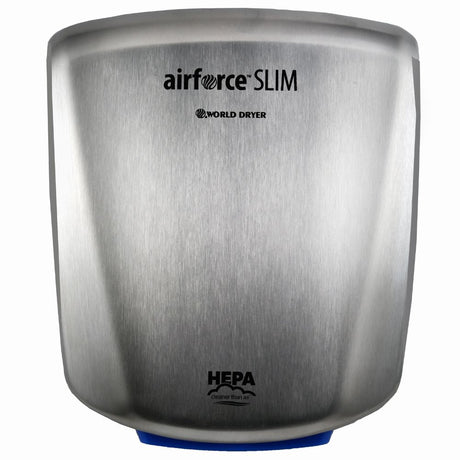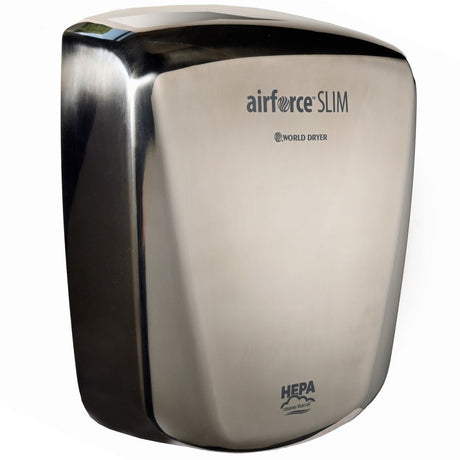School and University hand dryer case studies
Intelligent have plenty of experience in supplying hand dryers and washroom supplies to schools. Check out a selection of case studies taken from the educational facilities we have provided.
Why choose hand dryers for your School?
- 95-98% cost savings vs paper towels
- Save caretakers/cleaners time restocking dispensers
- Protecting future generations – environmentally friendly
- Saves sinks, urinals and toilets from being blocked
Washrooms are cleaner - More hygienic than paper towels
What cost savings will you see with a hand dryer?
We know schools have tight budgets. A typical primary school has 280 pupils and 30 staff; with these numbers 2500 paper towels will be consumed every day. That is 500,000 paper towels every school year. At current prices that’s almost £5000 in paper towels alone. Hand dryers appropriate for a school setting will consume a total of 475Kw to deliver the same number of dries at a cost of £95, a 92% cost saving!
Of course, decision makers will have to factor buying and installing the dryers. In our experience, a budget of around £1500 should suffice for a typical primary school, so the dryers will quickly pay for themselves and generate savings for years to come.
The savings become far larger for secondary schools where the average number of pupils is 900, and much more again for a college or university. Contact us for a free cost-saving assessment for your school.
Saves staff time by using hand dryers in schools
A comprehensive school could have up to 25 toilets which would take a substantial amount of time to check whether the paper dispensers are full or not. This isn’t including the time taken to empty the bins, order the products, clean up the floors and unblock sinks and toilets. With hand dryers these issues are negated.
Environmental impact of paper towels
We all know how important protecting the world's resources and reducing our carbon footprints are. Large facilities like schools have a huge part to play. In an average comprehensive school, 1.6 million towels will be used in a year, which is 64 fully grown trees. More importantly, it’s the huge amount of soil degradation, water, chemicals, energy, and fuel that go into growing, manufacturing, and transporting paper towels. Hand dryers are a zero-waste solution that reduces carbon emissions by 90% per-dry. Paper towels cannot be recycled into paper towels and the majority are classed as contaminated waste, so they end up rotting in landfills producing methane.
Cleaner, more hygienic school washrooms
School washrooms can be a horror show with paper towels all over the floor, blocked sinks, overflowing bins and empty dispensers. During the pandemic, the paper towel industry attempted to claim hand dryers were less hygienic, but the reality is that they are non-touch devices that use the air you (and paper towels) are already surrounded by. Many have HEPA filters and ionisers to improve hygiene. Hand dryers are approved by governments throughout the world and leading authorities like WHO and CDC. Remember, the least hygienic thing to do is to have wet hands and hand dryers never run out!
What makes a good hand dryer in a school environment?
Schools place unique demands on hand dryers. It is clearly important to consider how robust and vandal resistant they need to be, but considerations like noise, energy consumption and dry time are also important. Fast-drying is vital to ensure effective hand hygiene, but also to keep the traffic moving through the washroom efficiently along with cost saving and energy efficiency.
Schools can be noisy, over-stimulating places. Kids playing, shouting, bells ringing and teachers shouting. Some younger children and those with autism may really struggle to regulate in these environments so its important hand dryers don’t add to these woes. We also don’t want hand dryer noise to impact on the classroom. We have a number of dryers assessed by the noise abatement society and awarded the quiet mark for having good sound quality which makes them accessible to all. Adjustable hand dryers are great for schools because it allows for a standard model to be used, and different noise levels set throughout the school. They can be adapted according to events taking place in the school and its layout. For example:
- Schools are full of corridors – heavily tiled washrooms that open out to corridors can cause the noise to really reverberate, so it's necessary to choose a quiet dryer or an adjustable model
- Exam time – the ability to turn dryers down to a lower level during exams can help students continue to dry their hands without disturbing others
- Large schools can cater for all age groups – the ability to adapt noise levels for different ages is important
- Speed of drying - sometimes kids need to nip out to the toilet during lessons. Make sure you have an effective dryer to ensure kids hands are thoroughly and hygienically dried, and don’t end up gone for longer than they need to be
Reduced heat hand dryers
Hand dryers can be overwhelming for some children with autism not only because of noise but because of the way they feel and sound. Many dryers have different heat settings, please feel free to contact us for samples if you have sensory concerns about any of your pupils, we will happily send samples for them to approve. Soft start motors, reduced noise and heat settings could all be important.
Choosing a hand dryer by Key stage
Key stage 0 (foundation stage) from ages 3-5
Special considerations for this age group include added safety, installation heights, noise levels for the user and noise transfer as the dryers are often located close to classroom areas, how user-friendly the dryer is, and whether it is sufficiently appealing to retain the child’s interest long enough to dry their hands. Enhanced hygiene features are also important, as young children are particularly prone to infection and passing onto carers and teaching staff. We have a couple of models that are specifically designed to appeal to children with cartoon-style graphics. These models have proven to be effective in encouraging this age group to dry their hands properly. Take a look at the Bamboo Bobbi and the Biodrier Biobot.
Our top 3 hand dryers for this age are:
Key stage 1 from ages 5-7
At this age, the noise levels remain an issue particularly if there are children with specific conditions. However, generally, the children’s tolerance to hand dryer noise levels will be far higher now. The noise transfer into classrooms may be an issue as it would be in any school.
Key Stage 2 from ages 7 to 11
This age group can normally cope with slightly increased noise levels compared with key stage 1 and therefore highspeed hand dryers, if appropriate for the area they are situated in i.e. it will not cause classroom, or library disturbance can be recommended. More inventive tampering may occur at this age group so this is also taken into account in our recommendations.
Our top 3 hand dryers for this age are:
Key stage 3 from ages 11 to 14
This age group can normally cope with further increased noise levels compared with key stage 2 and therefore high-speed hand dryers, if appropriate for the area they are situated in i.e. it will not cause classroom, library disturbance, can be recommended. This age group is usually in larger schools so hand dryers for higher traffic are appropriate. The type of vandalism can be more physical and therefore extra consideration for this is necessary. This will of course vary in importance.
Key stage 4 from ages 14 to 16
No additional considerations beyond key stage 3 need to be made here.
Our top 3 hand dryers for this age are:
Hand Dryers for Universities
A university is a complex mix of different property types. For example, there will be libraries, concert halls, lecture theatres, administration areas, sports halls, changing huts situated in the middle of fields, student bars, and laboratories. Some properties will be state of the art, and others will have been built hundreds of years ago.
The toilets located near each of these diverse buildings will have to consider the level of footfall, the likely misuse of washrooms, the electrical supply, and acceptable noise levels are given the acoustics and nature of the building.
Given the complexity of the premises, we advise getting in contact to discuss your needs when looking at hand dryers. Our team of experts will be able to put a package together to perfectly suit your needs.
For more information on these recommendations please check out our Top hand dryers for schools blog, or call one of our hand dryer experts on 0114 3540047.
 Find out more
Find out more Help me choose
Help me choose


